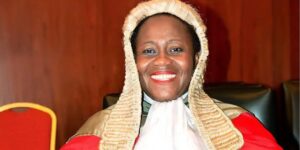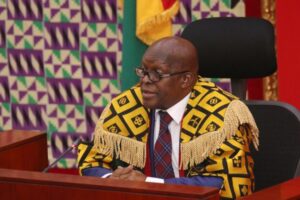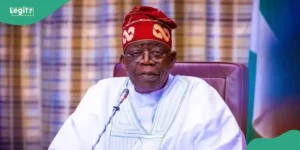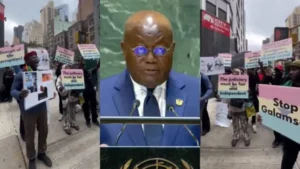
The Seventh Day Adventist Church in Ghana faces a dilemma: participating in the elections on a Saturday, which is their Sabbath. With 800,000 members potentially disenfranchised, the debate intensifies around balancing religious convictions with civic duties in a nation where 70% of the population is Christian.
As the crucial 7 December 2024 election in Ghana approaches, a significant portion of the population faces a potential disenfranchisement issue. The Seventh Day Adventist (SDA) Church, with approximately 800,000 members, is grappling with the conflict between their religious beliefs and the civic duty to vote.
The SDA Church’s long-standing conviction that voting on the Sabbath is not in alignment with their religious beliefs presents a challenge to Ghana’s democratic process.
The political implications are significant given that 60% of SDA members in Ghana are Ashanti, the ethnic group that dominates the ruling New Patriotic Party (NPP). This demographic alignment suggests that the SDA vote could influence electoral outcomes.
The Adventists have significantly contributed to Ghana’s development, especially in education and healthcare. They operate 916 schools, including the esteemed Valley View University, along with 13 hospitals and 12 clinics nationwide.
“If we begin to tilt or twist voting days or a day to exercise your civil right in the direction of religious convenience, then charismatics will have to propose a day. Muslims will have to choose to say, any day that [the] election falls on Friday, we are not agreeing,” Mustapha Gbande, deputy general secretary for the opposition National Democratic Congress (NDC), said.
As Ghana prepares for its crucial December election, the SDA Church’s conflict between religious observance and civic duty underscores the broader challenges of balancing faith and democracy in a secular state. While the church’s stance highlights the importance of religious convictions, the legal and constitutional constraints present significant hurdles to changing the election date.
For Rev. Fr. Dieu Donne Kofi Davor, theologian and executive secretary of the national Catholic secretariat, tolerance and compromise are crucial in resolving the issue.
“This is a constitutional date…, and there have been occasions that we had to vote on other dates, including Fridays and Sundays. So, since this is something that takes place once in four years, we should make room, we should be ready to compromise where it matters most, and be tolerant about it,” Davor tells The Africa Report.
The leadership of the SDA Church in Ghana has consistently advocated for a change of the election date to accommodate their members. “The Sabbath, observed from sunset on Friday to sunset on Saturday, holds deep spiritual significance for Adventists,” says a statement from the church.
“Our longstanding conviction and teaching have been that members should not engage in non-religious activities, including voting. Voting on the Sabbath is therefore contrary to our understanding of its sanctity,” says the statement.
The SDA Church says it recognises the civic responsibility of its members but insists that their faith takes precedence. This position has sparked a broader debate on the intersection of religious beliefs and civic duties in a secular state.
Ghana’s President Nana Akufo-Addo recently appealed to the SDA Church, saying: “The teachings of Christ Jesus call for harmonising spiritual convictions with civic responsibilities, recognising that the fulfilment of both is essential to the well-being of the community.”
But some believe that the decision by the SDA Church is self-imposed, including Jonathan Asante-Otchere, a political analyst and lecturer at Ghana’s University of Cape Coast. “It is not as though someone is disenfranchised. I think it is a decision that they have taken according to their faith. But of course, this is a secular nation, and we need to build the nation,” Asante-Otchere said.
